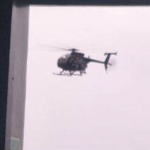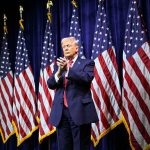(Photo Kevin Dietsch)
Vice President JD Vance said Russia is “asking for too much” in negotiations over the Russia-Ukraine war at the Munich Leaders Meeting on Wednesday.
Wolfgang Ischinger, the former chairman of the Munich Security Conference (MSC), who conducted the interview in Washington, D.C., asked Vance to provide an update on U.S. strategy toward the conflict moving forward.
The Trump administration seemingly agrees with most of Europe that Russia does not appear to be “willing to end this military confrontation,” Ischinger told Vance.
Vance clarified that he is not pessimistic enough to say the Russians are uninterested in resolving the conflict.
“Right now, the Russians are asking for a certain set of requirements, a certain set of concessions, in order to end the conflict,” he said. “We think they’re asking for too much.”
He added that starting negotiations was the correct decision by the administration.
“It’s absurd that you’ve had this war go on for so long, and the two sides aren’t even talking constructively about what would be necessary for them to end the conflict,” Vance said.

US Vice President JD Vance and Wolfgang Ischinger, president of the Foundation Council, participate in a discussion at the Munich Leaders meeting hosted by the Munich Security Conference at the Willard Hotel in Washington, DC, May 7, 2025. (Photo by MANDEL NGAN/AFP via Getty Images)
President Donald Trump has a “genuine humanitarian impulse about this” as “he just wants the killing to stop,” Vance said. He reiterated the president’s warning that Trump would walk away from the negotiations if they are not progressing.
Since the administration’s efforts for a ceasefire didn’t materialize, Vance said they are trying to focus on a long-term solution.
“We’ve tried to move beyond the obsession with a 30-day ceasefire and focus more on what the long-term settlement would look like,” he said.
The administration’s next step is to get “the Russians and the Ukrainians to actually agree on some basic guidelines for sitting down and talking to one another,” Vance added. (RELATED: Pentagon Salivates Over ‘Expensive’ Weapons While China Races Into Future With Iron Grip Over Cheap Drone Tech)
He emphasized that there needs to be direct negotiations between the two countries.
“We think it is probably impossible for us to mediate this entirely without at least some direct negotiation between the two,” Vance said.
A tool in Trump’s arsenal is his “strategic realism,” Vance noted.
“You don’t have to agree with the Russian justification for the war … but you have to try to understand where the other side is coming from to end the conflict,” he said.
.@VP JD Vance at Munich Security Conference: “I wasn’t sure if after February if I’d get the invitation back…everything that I said there applied as much to the previous American administration as it did any government in Europe…it’s not Europe bad, America good…both Europe… pic.twitter.com/wEAyn2UYEi
— CSPAN (@cspan) May 7, 2025
Vance said Trump is “forcing the Russians” to lay out what they want in order for the conflict to be resolved.
“The first peace offer that the Russians put on the table, our reaction to it was ‘you’re asking for too much,’ but this is how negotiations unfold,” Vance said, adding that he was not pessimistic about coming to a resolution.
Ischinger added that the confrontation “puts at risk all of European security” and said he hopes the negotiations would be long-term.
Ischinger also brought up Vance’s February address to MSC in Munich.
Ischinger called Vance’s address an “intense” speech that “kicked off a pretty controversial debate about fundamental values, unlike anything we have ever had at the [MSC].”
He then held up a brochure published by the MSC, which included reactions to Vance’s February speech. Vance called on Europe to stand against violations of freedom of speech and the rule of law in their own countries.
Ischinger and Vance both emphasized the importance of the U.S. and Europe moving forward together.
“I think the message has arrived in Europe that we need to carry a significantly larger share of the burden,” Ischinger noted.











